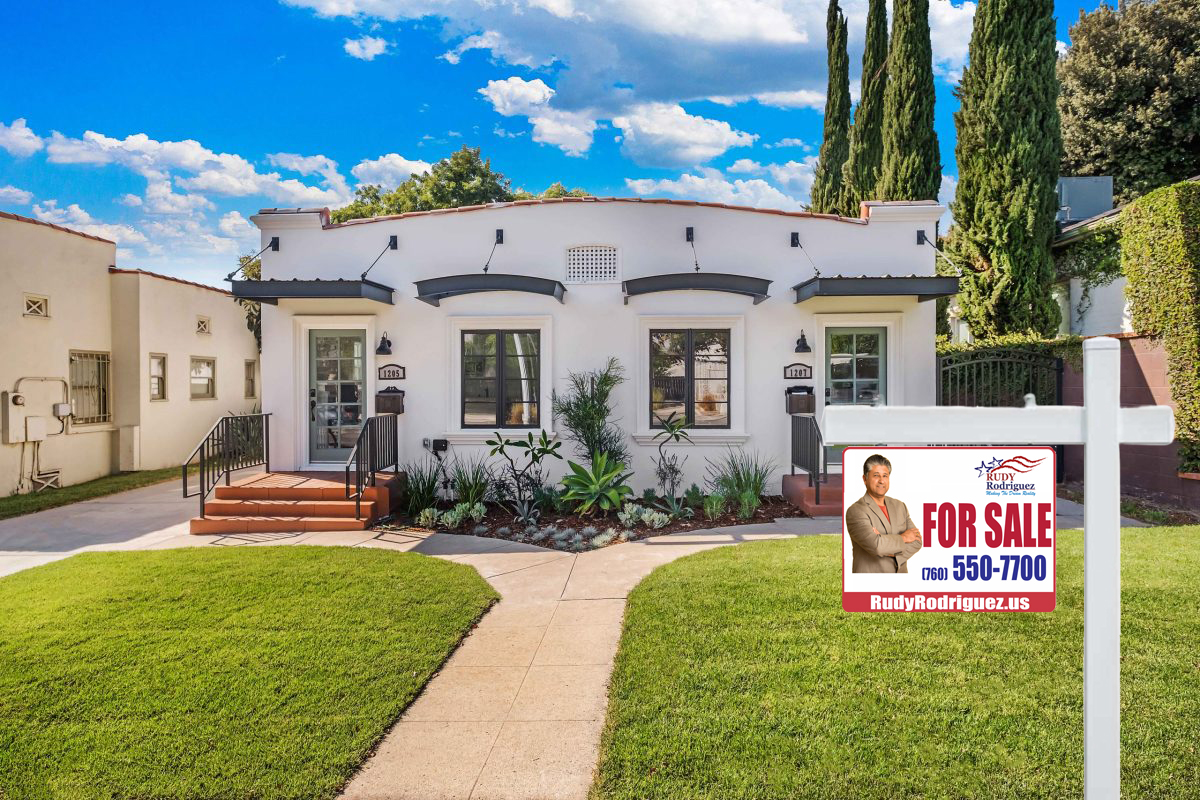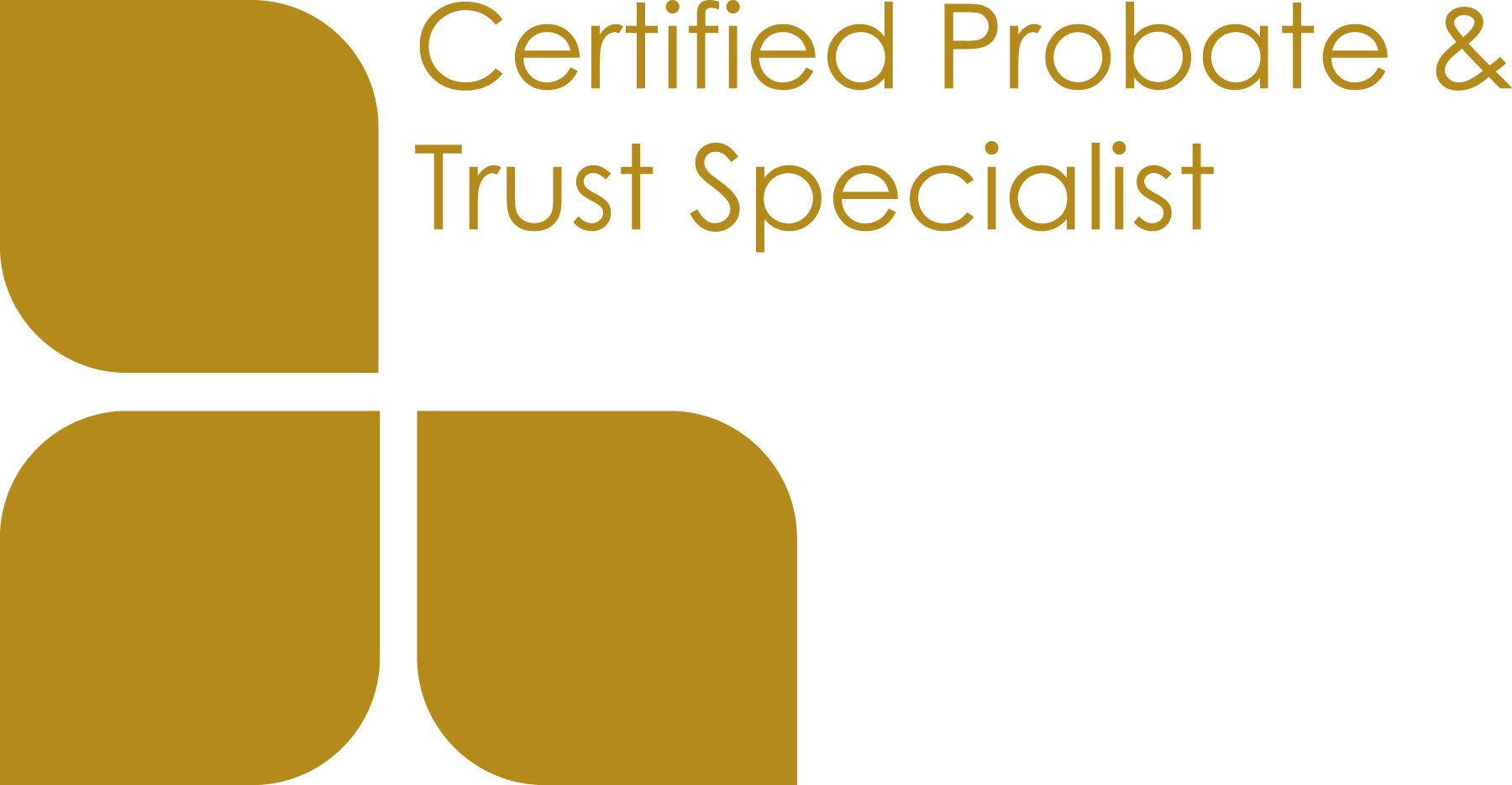Savvy California homeowners usually choose living trust as their estate planning tool of choice. A trust offers the ultimate “control from the grave” as it enables individuals and families to leave clear, executable instructions on how their assets should be distributed upon their death. Having a trust in place also avoids probate in California. Compared to the cost and inconvenience of probate, a living trust, which, on average, costs around $2,500, is a true bargain. Probate of assets in California usually ends up costing tens of thousands of dollars.
In addition to a living trust, there are other exceptions to probate. We are going to go over all of them in this post.
1) Living Trust
If the home is vested to a Living Trust, then probate is not needed. The reason why probate is not necessary is that the Living Trust owns the property, not the decedent. The Successor Trustee is in charge and should he or she decide to sell the property, they can accept an offer and sign the documents necessary to close escrow without any interference from the probate court.
2) Joint Tenancy
Joint Tenancy doesn’t always avoid probate, but it can if certain conditions are met. If the property is vested in joint tenancy, then the question is whether all joint tenants have passed away. Probate is only necessary if ALL joint tenants have passed away. Otherwise, the property simply passes to the next joint tenant who is alive.
For example, if mom and dad vested their home as joint tenants and dad dies first, probate is not necessary. Instead, an Affidavit of Death of a Joint Tenant would be recorded for dad with the county recorder, along with a certified death certificate. Then, when mom dies, a probate would be needed.
3) Community Property
If mom and dad vested their home as community property, then title passes to the surviving spouse unless the deceased spouse left a will. Theoretically, mom and dad each own 50% of the home. Thus, mom could will her 50% to her favorite charity or to anybody she chooses; if this were the case and mom’s estate is valued over $166,250 starting 1/1/2020, then probate would most likely be required.
In practice, if a house is in community property and the surviving spouse wants to sell the house, the title company will often ask all children to sign off to close escrow without the need for any probate court involvement. Because dad or mom may dispose of his or her half of the community property in his or her will or trust, if no estate plan has been put in place, the surviving spouse may be forced to go to court and petition for a court order that passes the deceased spouse’s half of the community property to the surviving spouse.
Some title companies will allow surviving to close without any type of court order if he or she signs the following form: “Affidavit of Surviving Spouse – Succeeding to Community Property (California Probate Code Section 13540).
4) Community Property with Right of Survivorship
Beginning July 1, 2001, husband and wife can vest their home as community property with right of survivorship. Property owned in this form apparently retains all the features of community property (including receipt of a new cost basis on death for both halves under IRC §1014) except that the property passes on death to the survivor, without any potential problem presented with community property.
If mom and dad have their home vested as community property with right of survivorship, then upon the death of the first spouse, the surviving spouse automatically gets the house. However, upon the death of the last surviving spouse, a probate is necessary. Because neither husband nor wife can will their 50% away, this is sometimes called the “I Love You Way of Holding Title” as it puts restrictions to how the property may be used by the surviving spouse.
5) Revocable Transfer on Death Deeds (RTOD)
This method is sometimes called “a poor man’s trust.” On September 21, 2015, a new method of transferring real property without probate or trust was enacted in California. Originally, from January 1, 2016, until January 1, 2021, a person may transfer certain real property on death by a revocable transfer on death deed (RTOD). California Senate Bill No. 1305 has extended the RTOD to January 1, 2022, so Californians can still take advantage of RTOD until 2022.
Here’s the way it used to work. The homeowner would simply add the beneficiary on the RTOD and when the homeowner passes away, the beneficiary would automatically be entitled to the house, without any sort of probate proceeding.
However, the situation was straightforward only until Prop 19 started taking into effect on February 16, 2021. After this date, homeowners trying to utilize RTOD in California will have to follow the law put in effect by Prop 19. Specifically, this affects parents who want to transfer their property to their children. The new Prop 19 requirements mean that:
- The property must be worth less than 1 million dollars;
- The children must claim the property as their primary residence.
Furthermore, RTOD was and is a well-intended, but likely, flawed piece of legislation. Based on our anecdotal evidence, many title companies are not fond of this estate planning vehicle and often refuse to insure a good title fearing potential fraud. The purported simplicity of the procedure exposes Californians, especially seniors, to fraud and undue influence. A relative or even a stranger may cajole a senior homeowner into signing the Revocable Transfer on Death paperwork without the homeowner fully understanding that they are basically giving their home away. This and the fact that RTOD will expire sooner or later makes this a less desirable option for many homeowners.
6) Spousal Petition
When a person dies intestate (meaning a person died without a will), leaving real property that passes to his or her surviving spouse or registered domestic partner under Prob C §6401, or dies testate (meaning a person died with a will) leaving all or a part of his or her property to the surviving spouse or partner, the surviving spouse or partner may file a “Spousal Property Petition” to receive the real property without probate. Prob C §§13500, 13502; Fam. C §297.5(c).
If the house is community property or if a will was left by the deceased spouse giving the house to the surviving spouse, then a spousal petition would be successful. Probate normally takes about 1 year to complete. However, a spousal petition (Form DE-221) would only take 3-4 months depending on the court schedule.
There are several important caveats when using this “fast track” Spousal Property Petition.
The house must be acquired during the marriage. In California, there is a legal presumption that all property acquired during the marriage is community property (except for inheritance or gifts). Thus, the surviving spouse would already own 50% of the house and all the spousal petition would do is petition to put the other 50% of the deceased spouse’s interest in the house into the surviving spouse’s name.
One spouse passed away and the house is community property and the surviving spouse wants to sell the house.
The names and addresses for all heirs need to be provided on the spousal petition to receive notice of the court date.
Once approved by the probate judge, the probate judge will sign the Order (Form DE-226). You will in turn give the certified order to escrow to close your escrow transaction.
7) Heggstad Petition
When a homeowner sets up a trust, normally, all real property will receive a new grant deed (this is known as funding the trust). Upon deeding the house to the trust, the trust owns the house. However, from time to time, the owner of the house might refinance the house and some lenders will ask that the house be deeded back to the homeowner prior to the refinance. A problem arises when the homeowner passed away and the house was never deeded back into the trust. Will probate be needed in this case?
There is a procedure known as a “Heggstad Petition” named after a 1993 case allowing the house to be put back into the trust. Whether or not a Heggstad Petition will be successful depends on the facts and circumstances involved. Our firm has successfully completed many Heggstad Petitions. If there is a trust with a “Schedule A” that lists the subject property and there is a “Pour-Over Will” that states all property shall be poured over to the trust, then almost always it will be successful.
However, what if there is no “Schedule A” and the house is nowhere mentioned in the trust, plus there is NO pour-over will? Then it becomes much more challenging. In these situations, we use a new landmark case: Ukkestad v RBS Asset Fin., Inc. (2015) 235 CA4th 156, 164. This case stands for the proposition that a general statement in the trust instrument that the grantor assigns all the grantor’s interests in all real and personal property is sufficient. Some probate judges will approve the “Heggstad Petition” even when there is no pour-over will.
In this procedure, there will be a court hearing date and all named heirs along with those named in the trust will be notified of the court hearing date. If the case is approved, then the probate judge will sign an order stating the house is part of the trust’s assets and escrow need will a certified order to close the real estate transaction. This procedure takes about approximately four months to complete.
Real Property in Small Estates: When Real Property Value is Less than $166,250.
Effective 1/1/2020, if the aggregate value of the decedent’s property exceeds $166,250, then a probate is necessary. If the decedent owns any type of real property that is worth less than $166,250; probate is not necessary.
However, either an 1) Affidavit RE Real Property of Small Value or 2) Petition to Determine Succession of Real Property will be necessary.
8) Affidavit RE Real Property of Small Value ($55,425 or Less)
If the decedent owned raw land or a fractional interest in real property and the value on the date of death is less than $55,425, AND at least six months have elapsed since the date of death of the decedent as shown in the certified copy of the decedent’s death certificate, then one may use this procedure to avoid probate.
However, to use the Affidavit RE Real Property of Small Value (Form DE305), one must hire a probate referee to appraise the value of the subject property and sign the Inventory and Appraisal (Form “DE-160”) under penalty of perjury stating the value on the form.
This procedure cannot be used if there is a probate proceeding happening or being conducted in California for the administration of the decedent’s estate. Furthermore, the affidavit requires a declaration that all funeral expenses of last illness, and all known unsecured debts of the decedent, have been paid. 10 ·
One would submit both forms to the probate court and if all is in order, then the court clerk will approve it along with a certified seal. ·
This procedure does not require a court hearing date but does need all heirs to sign off on it. This process might take approximately 2 months.
The “Affidavit RE Real Property of Small Value” is typically used for situations where the decedent owned raw land under his or her own name.
9) Petition to Determine Succession to Real Property ($55,425 to $166,250)
For real property with a value between $55,425 to $166,250, you can avoid probate by filing Form DE-310, which is known as “Petition to Determine Succession to Real Property”.
You can use this form if at least 40 days have elapsed since the date of the decedent’s death and is no probate being conducted in California for the administration of the decedent’s estate.
The gross value of the real property needs to be between $55,425 to $166,250. You would hire a probate referee to prepare the Inventory and Appraisal form, which is Form DE-160 to reflect such value. The idea is that the court wants an independent probate referee to confirm that the value is indeed between $55,425 to $166,250.
This procedure will require a court hearing to be approved and signed off by the probate judge. Depending on the court calendar, this process may take between 2 to 4 months to complete. The court will ask that all heirs be given notice. This means you must put all names and addresses of all heirs on the Petition to Determine Succession to Real Property form.
While this petition in theory avoids probate, the court is still involved and the practical use of the petition in California is limited: Anyone with knowledge of the California real estate market will confirm that finding real property worth less than $166,250 in the state is nearly impossible.






